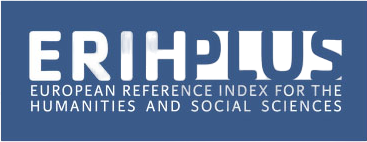Predicaments of e-democracy in Serbia
##plugins.themes.bootstrap3.article.main##
The statistics of 2013 in Serbia show that almost 60% of the total population are computer owners, which is 5% more than in 2012. In addition, about 56% have Internet access, which increased by 8 % over last year. This makes it fast, continued strong for the use of information technology and communications (ICT) in the management of the different functions of the state development. The first step was done in the exploitation of various forms of administration, which is mainly limited to electronic services, improving the previous bureaucratic tradition, the communication between citizens and the state administration. In addition, the administration included the first attempts of the participation process by enabling citizens to express their opinion through public discussion in the process of drafting the law, as well as various forms of debate held in the web portal specialized government.
Given the increasing spread of literacy and Internet access to hardware, the authors state that participation does not yet provide an adequate or substantial impact of citizens in the political process. In order to reduce a gap between citizens and the state authorities in decision-making procedures, the most comprehensive statement of the institutions of direct democracy is now possible and necessary, but some obstacles in the way. For starters, you can score the introduction of participation through referendum, at least partly, locally, particularly in technologically developed regions, with an important educational function. It could stimulate interest in political participation in general, logistics preparation for other forms of further development of democracy. However, the problem in Serbia is not primarily connected to the difficulties or technological barriers, but to the will of the political elite to accept the transfer of real sovereignty of the people as its owner.
Downloads
##plugins.themes.bootstrap3.article.details##
Altman. D. (2011). La Democracia Directa en el mundo. Nueva York, Cambridge University Press.
Ransière. J. (2009). Odio a la democracia. Londres,Verso.
Walzer. M. (2006) Política y Pasión - Hacia un liberalismo más igualitario. New Haven y Londres, Yale University Press.
Rousseau. J. (1992). El contrato social. Paris, Flammarion.
M. (2003). Fundamentos de la Teoría del Estado y Derecho, Belgrado, Academia de Policía.
Catt, H. (1999). Democracia en la práctica, Londres-Nueva York. Routledge.
Bobbio. N. (1987). El futuro de la democracia - En defensa de las Reglas de Juego. Roger Griffin (trad.), Minneapolis, University of Minnesota Press.
Kersting, N. Leenes, R. & Svensson, J. (2004). El voto electrónico y la Democracia - Un Análisis Comparativo (eds. N. Kersting, H. Baldersheim), Nueva York, Palgrave Macmillan.
Wilhelm. A. (2000). La democracia en la era digital, los desafíos a la vida política en el espacio cibernético, Nueva York-Londres, Routledge.
Buchstein. H. (2004). La democracia en línea, ¿Es viable? ¿Es deseable? Internet Votación y Teoría Democrática Normativa «, voto electrónico y la Democracia - Un Análisis Comparativo (ed. N. Kersting, H. Baldersheim), Nueva York, Palgrave Macmillan.
Butler, D. & Ranney, A. (1980). Referendo - Un estudio comparativo de la práctica y la teoría, Empresa Americana Enterprise Institute de Washington, Investigación de Políticas Públicas.
Beetham. D. (2005). Democracia, Oxford, Oneworld,
Held, D. (2006). Modelos de Democracia, Barcelona, Paidós.
Pratchett, L; Routledge, N; Kersting, R; Leenes, J. Svensson. (2005). Equilibrio entre seguridad y simplicidad en el voto electrónico: hacia un compromiso efectivo. La Unión Europea y el voto electrónico. eds A. Trechsel, F. Méndez, Londres-Nueva York, pp. 282-284.
Álvarez, M. & Hall, T. (2008). Elecciones electrónicas - Los peligros y promesas de Democracia Digital, Princeton y Oxford, Princeton University Press.
Drechsler, W. & Madise, Ü. (2004). El Voto Electrónico en Estonia», voto electrónico y la Democracia - Un Análisis Comparativo (eds N. Kersting, H. Baldersheim). Nueva York, Palgrave Macmillan.
Gibson (2005). Voto por Internet y las elecciones al Parlamento Europeo», La Unión Europea y el voto electrónico (eds. A. Trechsel, F. Méndez), Londres-Nueva York, Routledge. Klaèar. B. (2011). El alcance y la intensidad de la participación directa de los ciudadanos a
través de referendos investigación, «las iniciativas y las asambleas de los ciudadanos, la participación directa de los ciudadanos en la comunidad local». Problemas, retos y recomendaciones para la mejora de procesos, Belgrado, OSCE.
PÁGINAS WEB
Clift, S. La Democracia, y el gobierno público», disponible en http://www.publicus.net/articles/edempublicnetwork.html.(Consultado, diciembre de 2013).

















